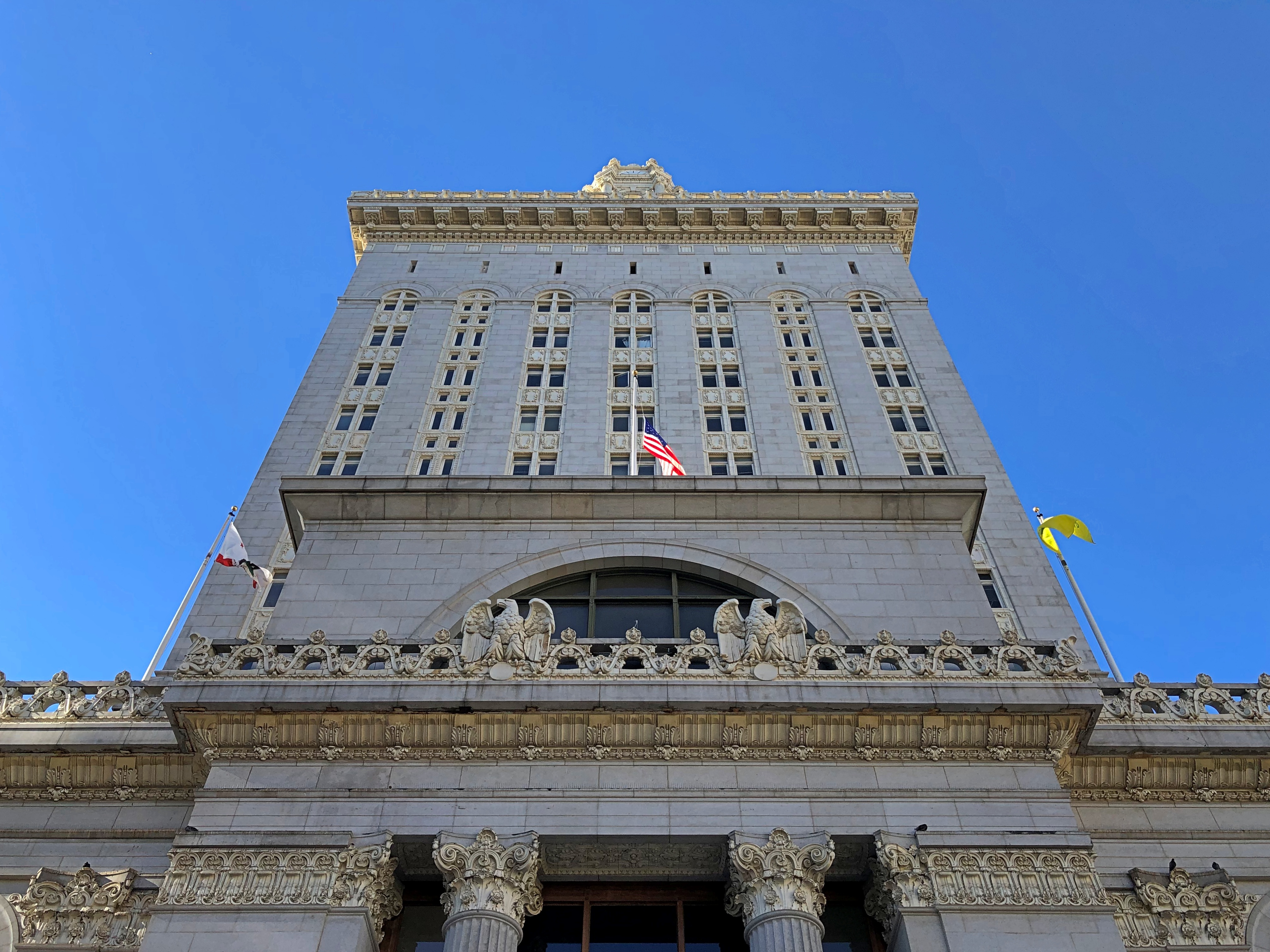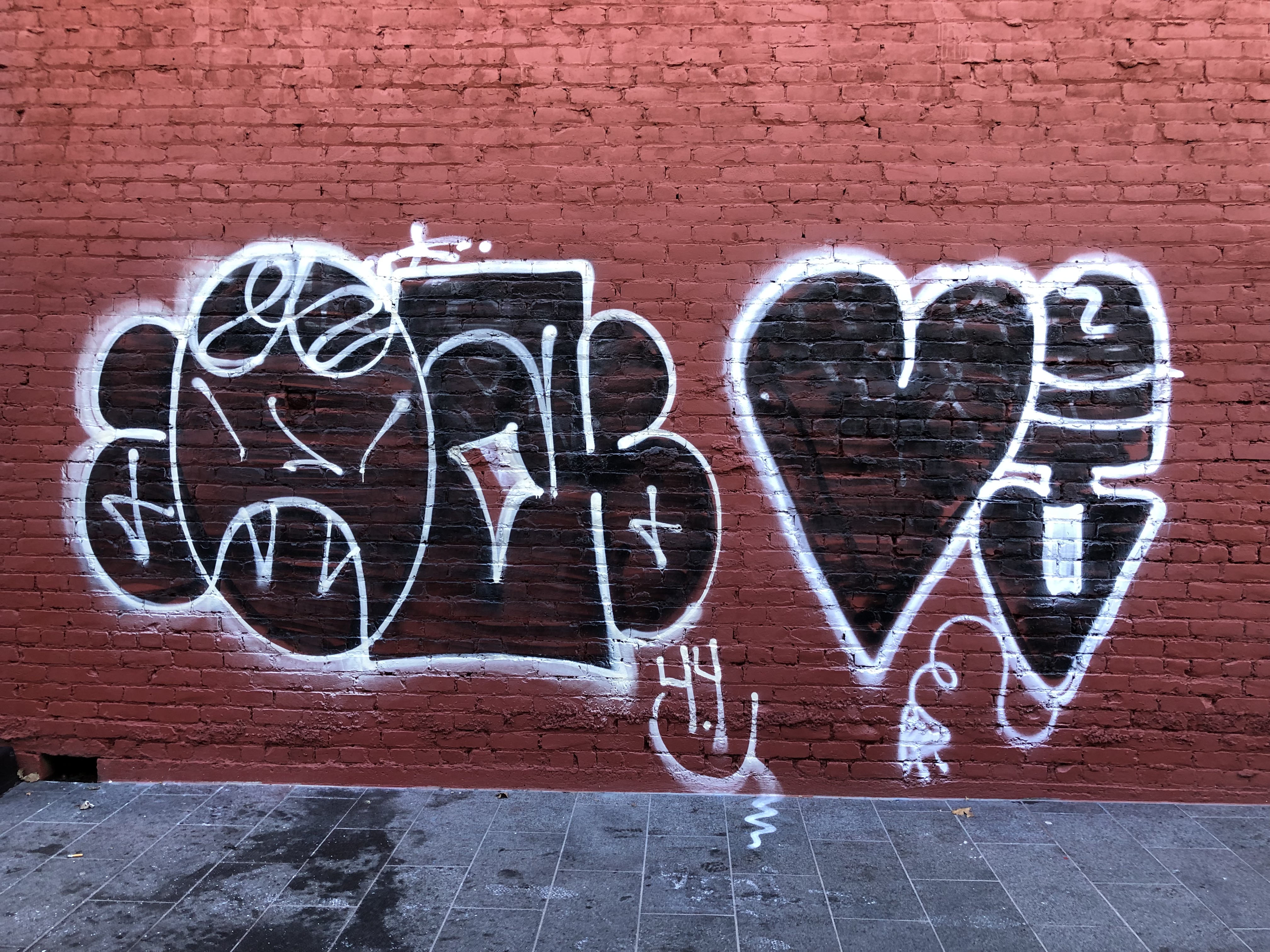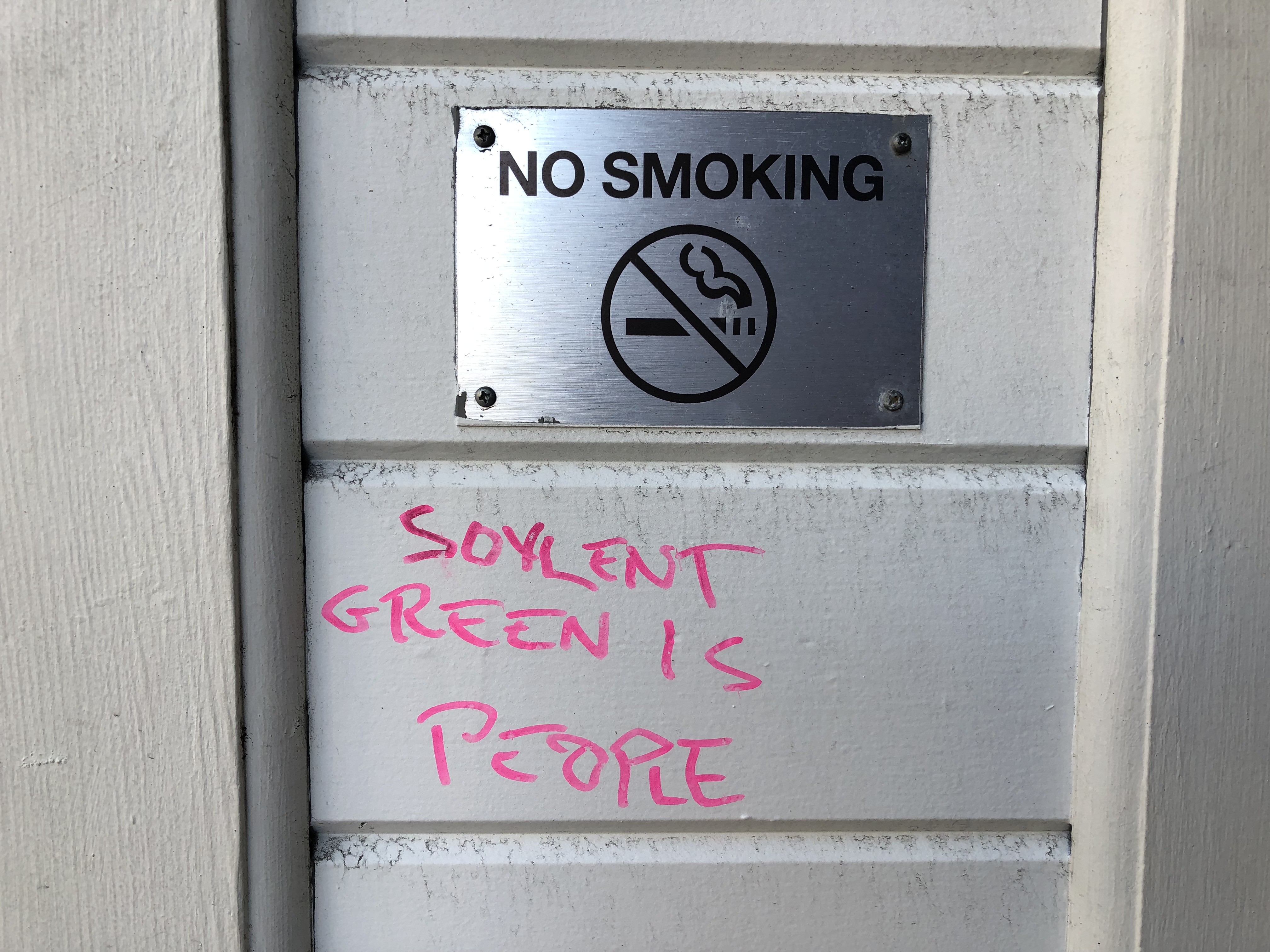Last Thursday I spent much of the day on foot in downtown Oakland, though I also took a couple of bus rides to further reaches of the city.
Seems like every city now has to have a mural like this.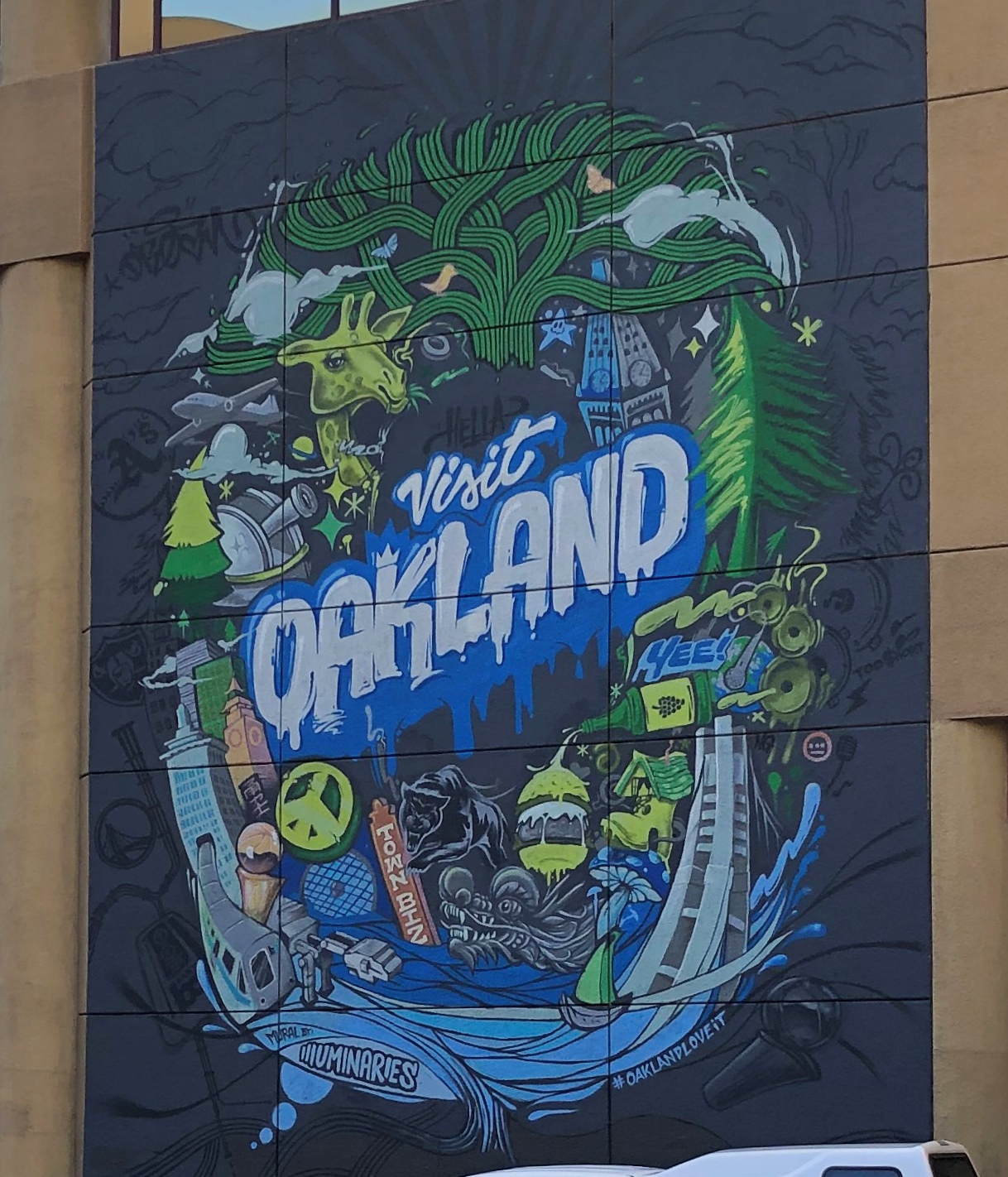
For a business day, the streets of downtown Oakland were relatively deserted.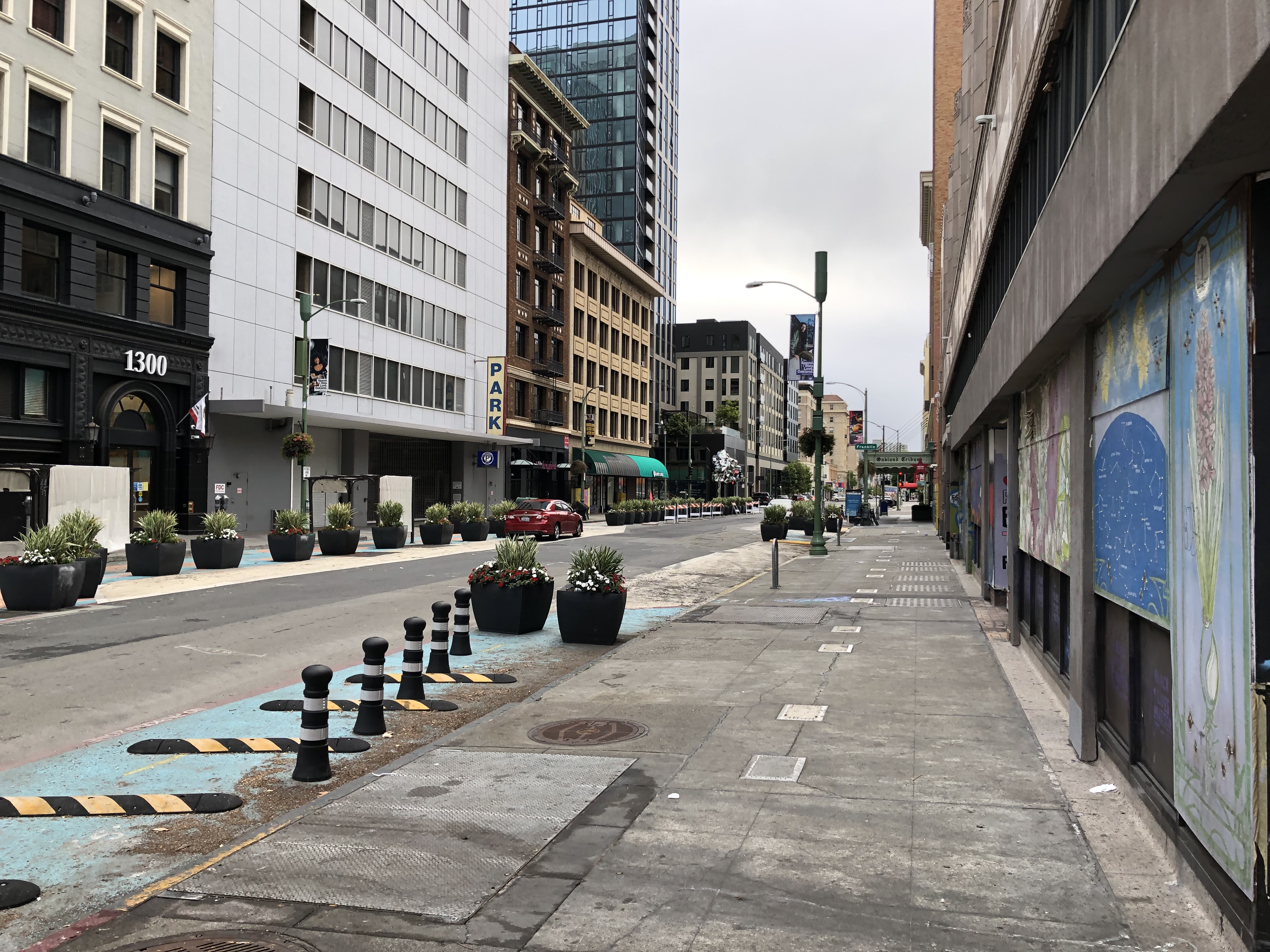
That included Oakland City Center, an example of urban renewal from decades ago, and home to offices and retail these days.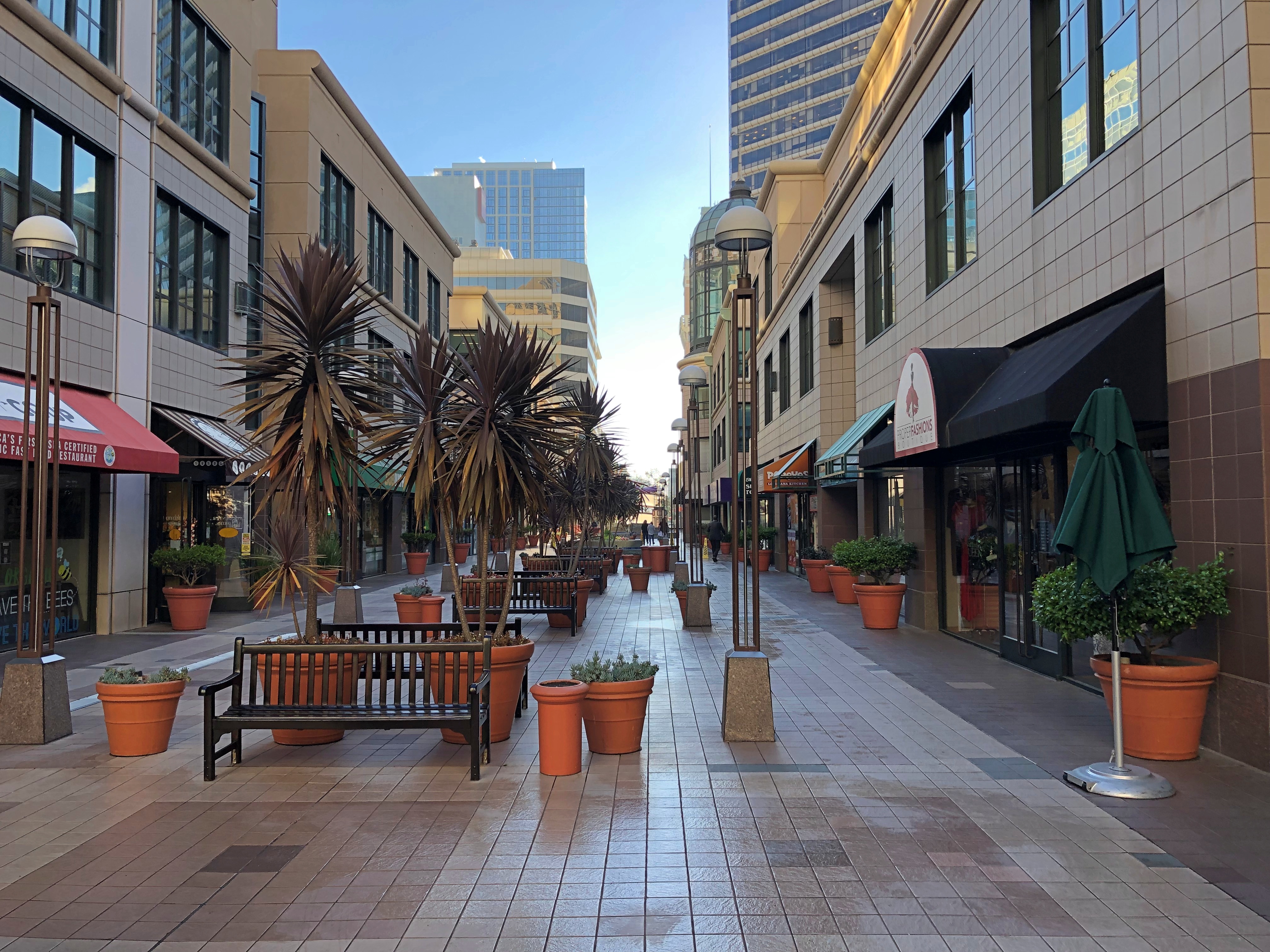
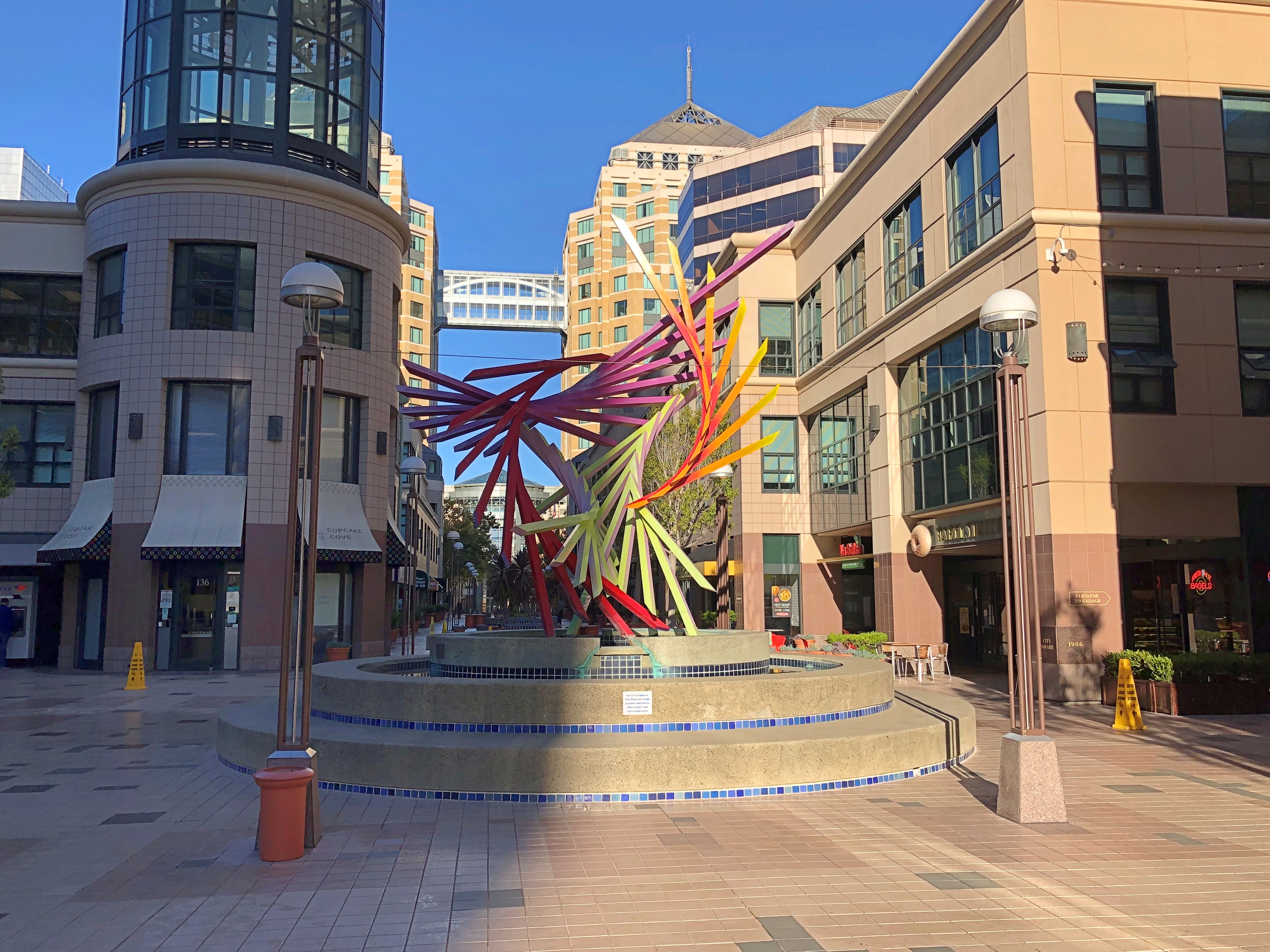
I suppose the lingering pandemic is keeping people from their offices, which affects the retailers as well. On the other hand, maybe downtown Oakland hasn’t been quite the same since the 1960s anyway, like the downtowns of such cities as Cleveland, Buffalo or St. Louis.
My hotel was downtown. About a block away was the Oakland Tribune Tower. The view from (roughly) southeast of the building along 13th St.
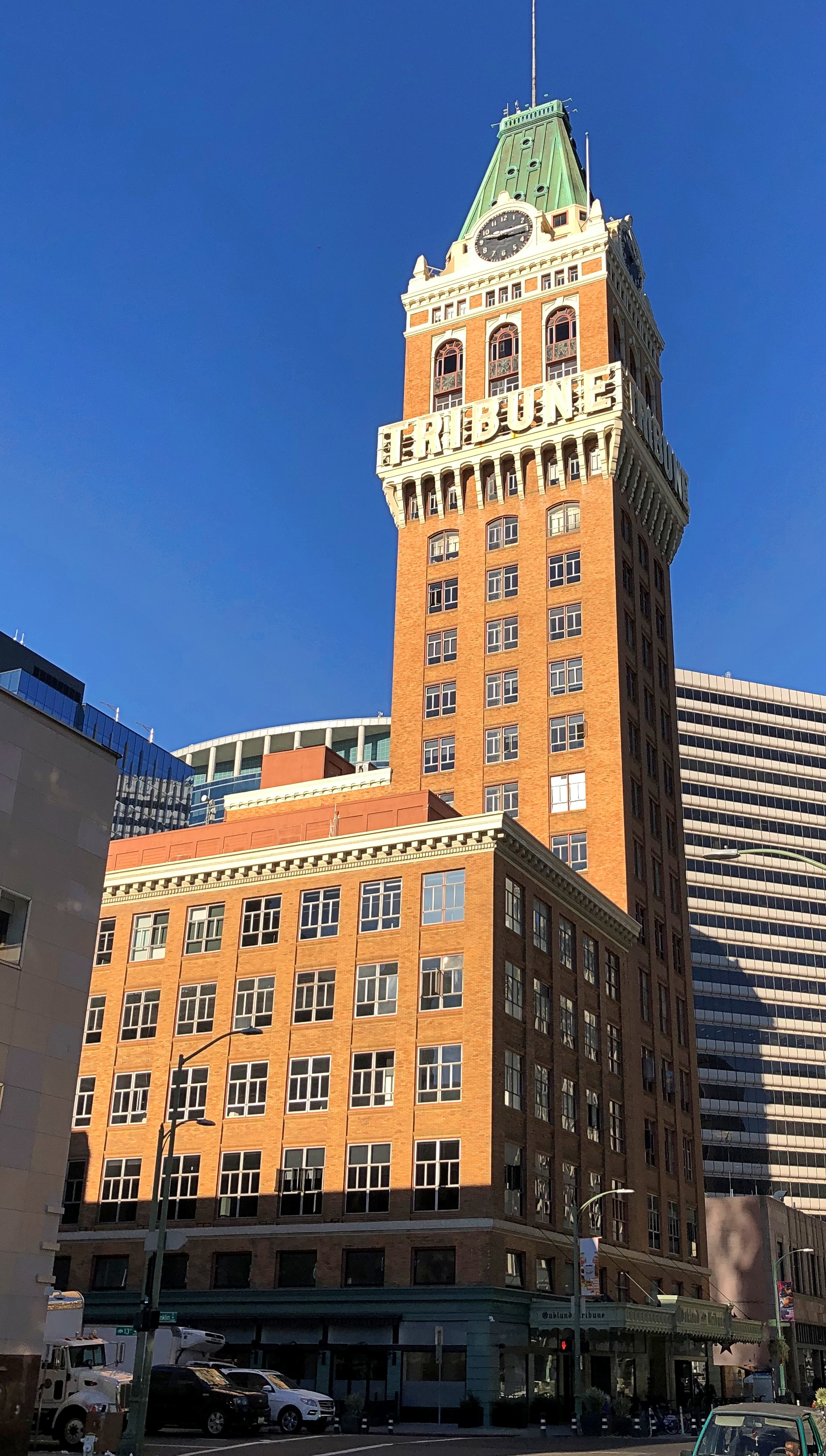
Go northwest of the building (roughly) and it towers over a shorter structure on Broadway. The tower was a 1923 addition to the original Tribune building, which had been a furniture showroom before the newspaper moved in. The building hasn’t been home to a news organization since the 2000s.
Though the sidewalks were mostly empty, someone is in downtown Oakland, patronizing the various restaurants and living in the residential redevelopments. A nice job, this one.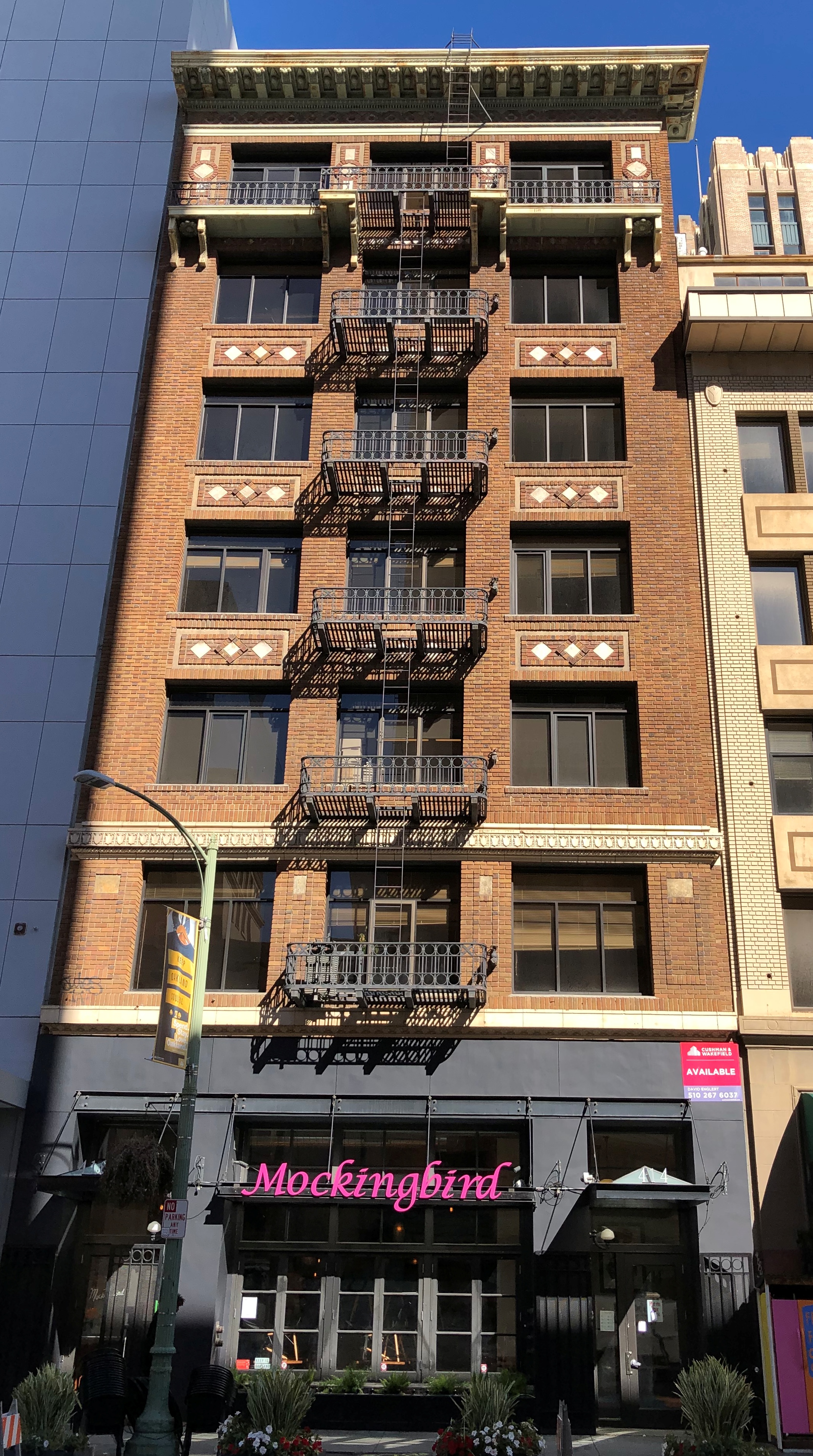
Oakland has its own flatiron building — the First National Bank Building, dating back to 1908.
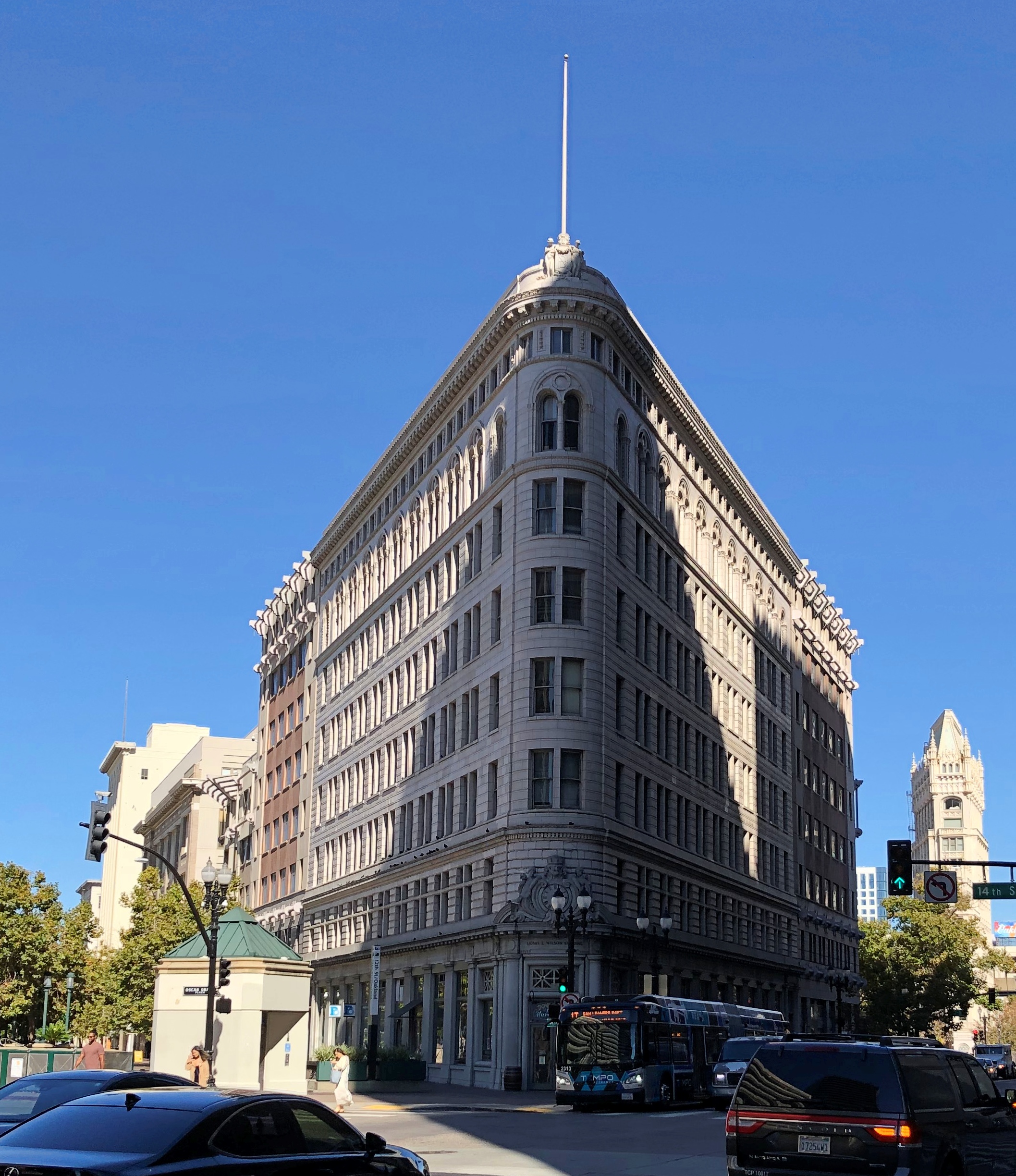
Even flatter is the Cathedral Building, vintage 1914.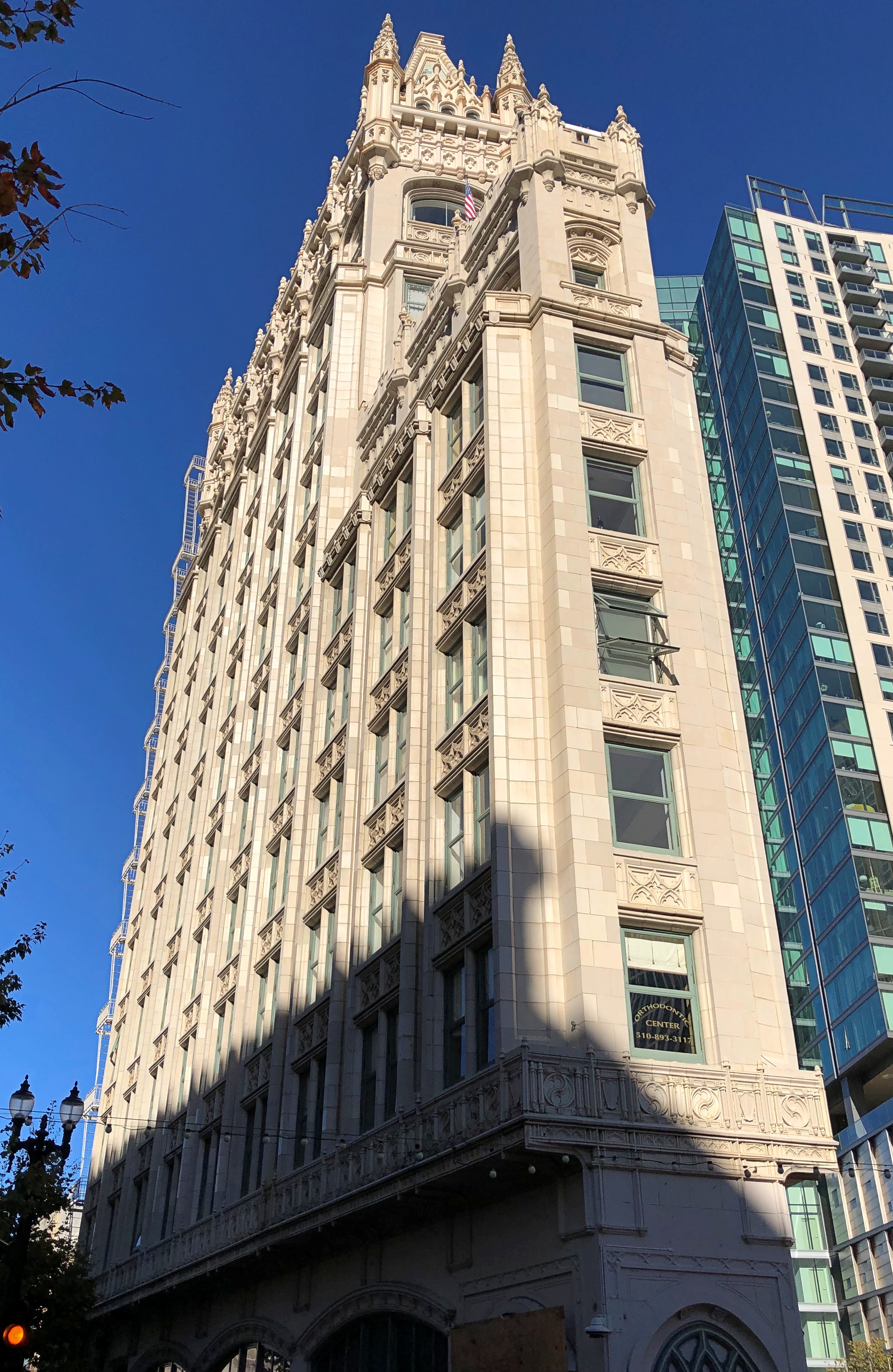
The Fox Oakland. Wish it had been open.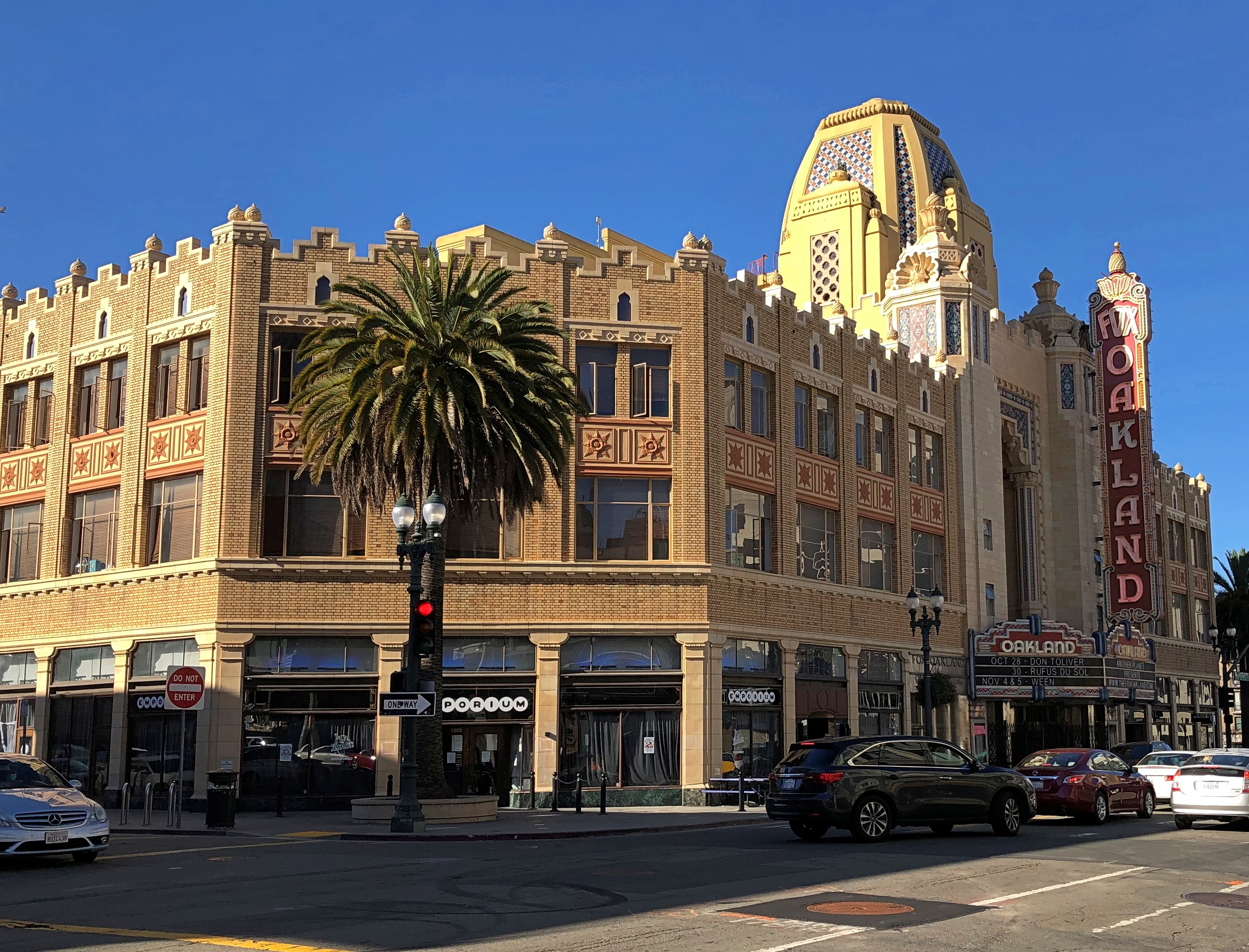
A magnificent Beaux-Arts designed by New York-based architecture firm Palmer & Hornbostel. I probably saw some of Henry Hornbostel’s buildings in Pittsburgh without realizing they were his.
City Hall was closed when I got there (on a separate walk on Saturday), but the just as magnificent Rotunda Building was open. Good thing, too, since most of its magnificence is on the inside.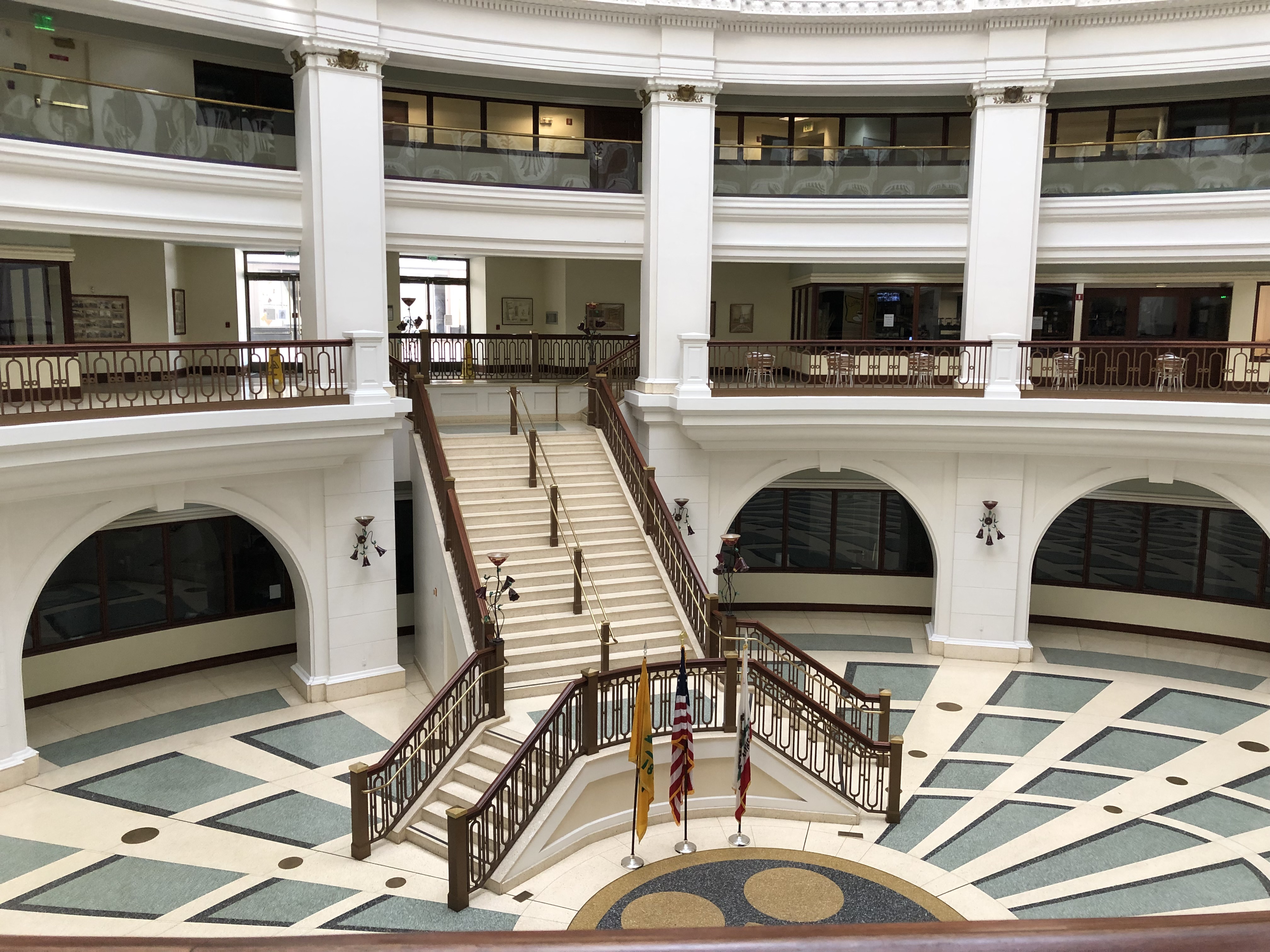
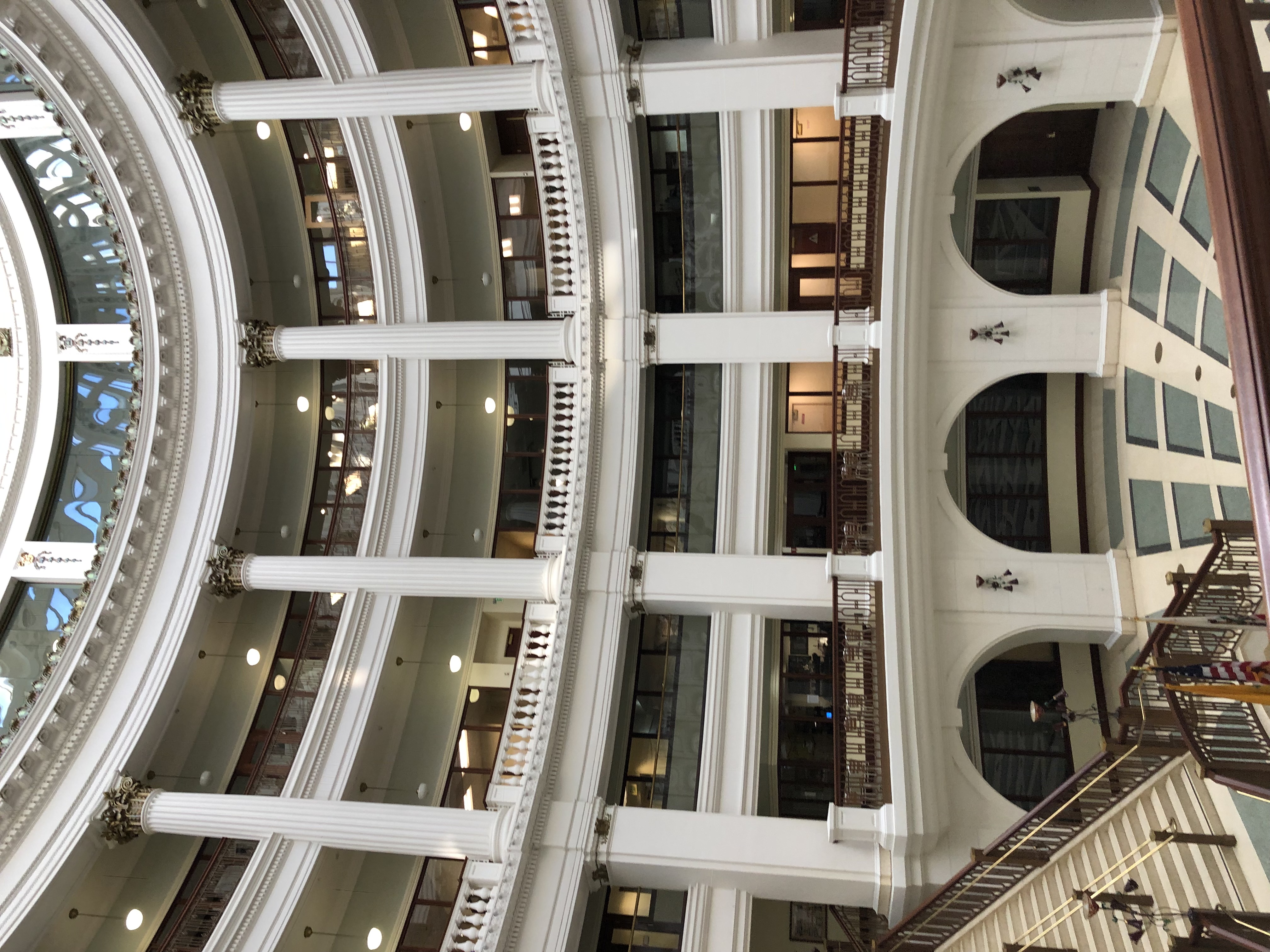
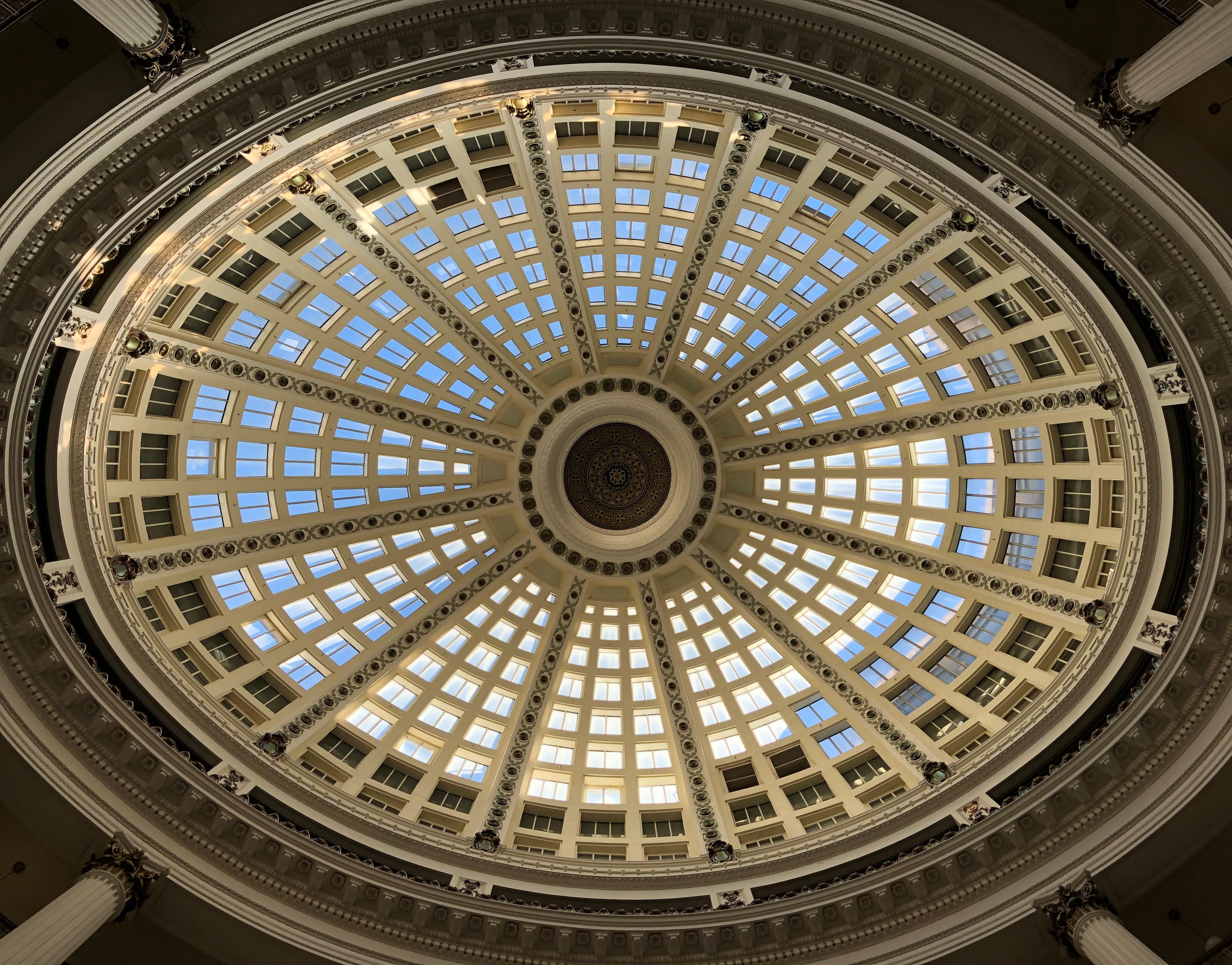
It started its existence as a department store in 1912 (Kahn’s Department Store). Wow, how far that species of retail has fallen.
Among the older tall structures of downtown Oakland are newer details, including social justice messages.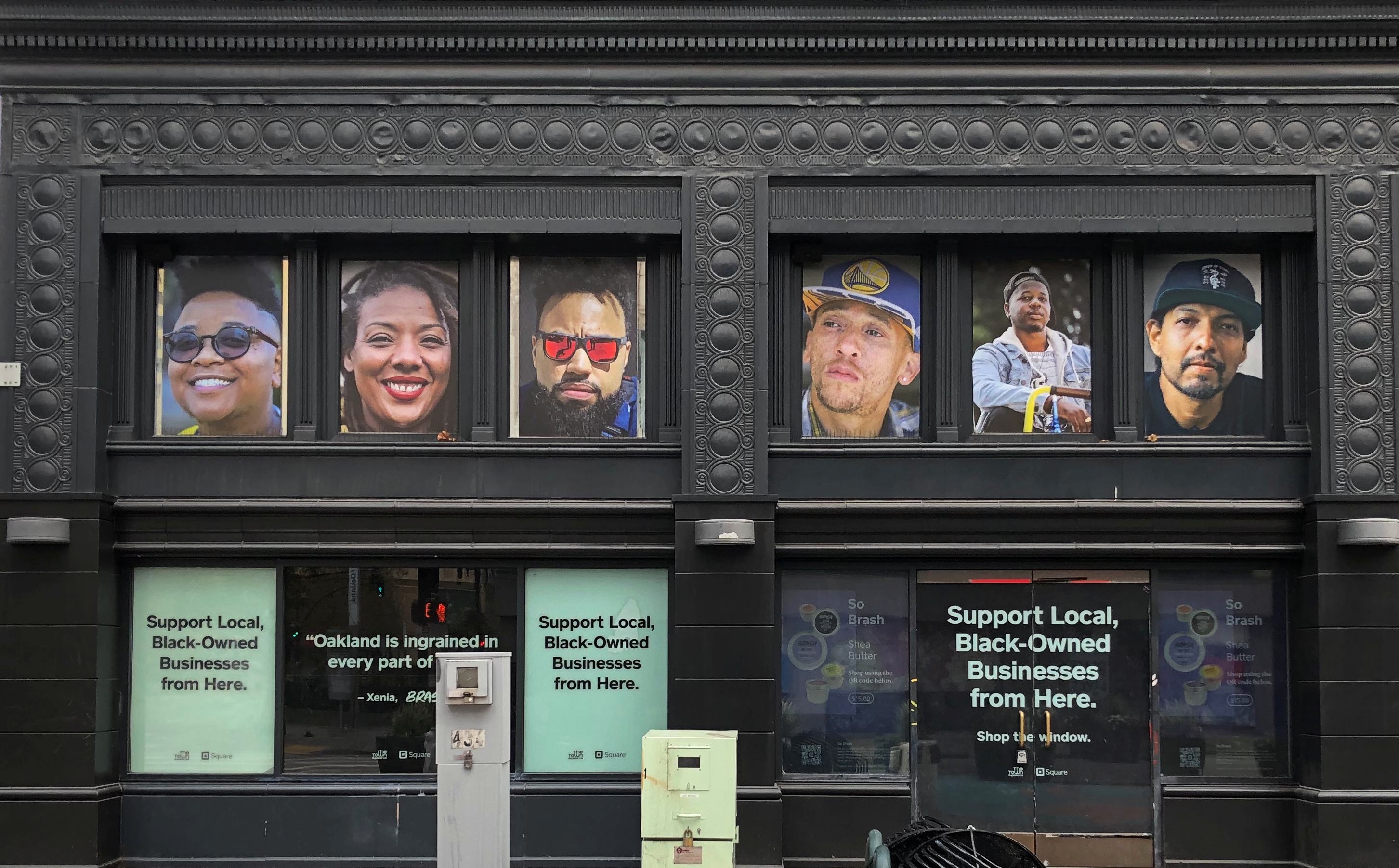
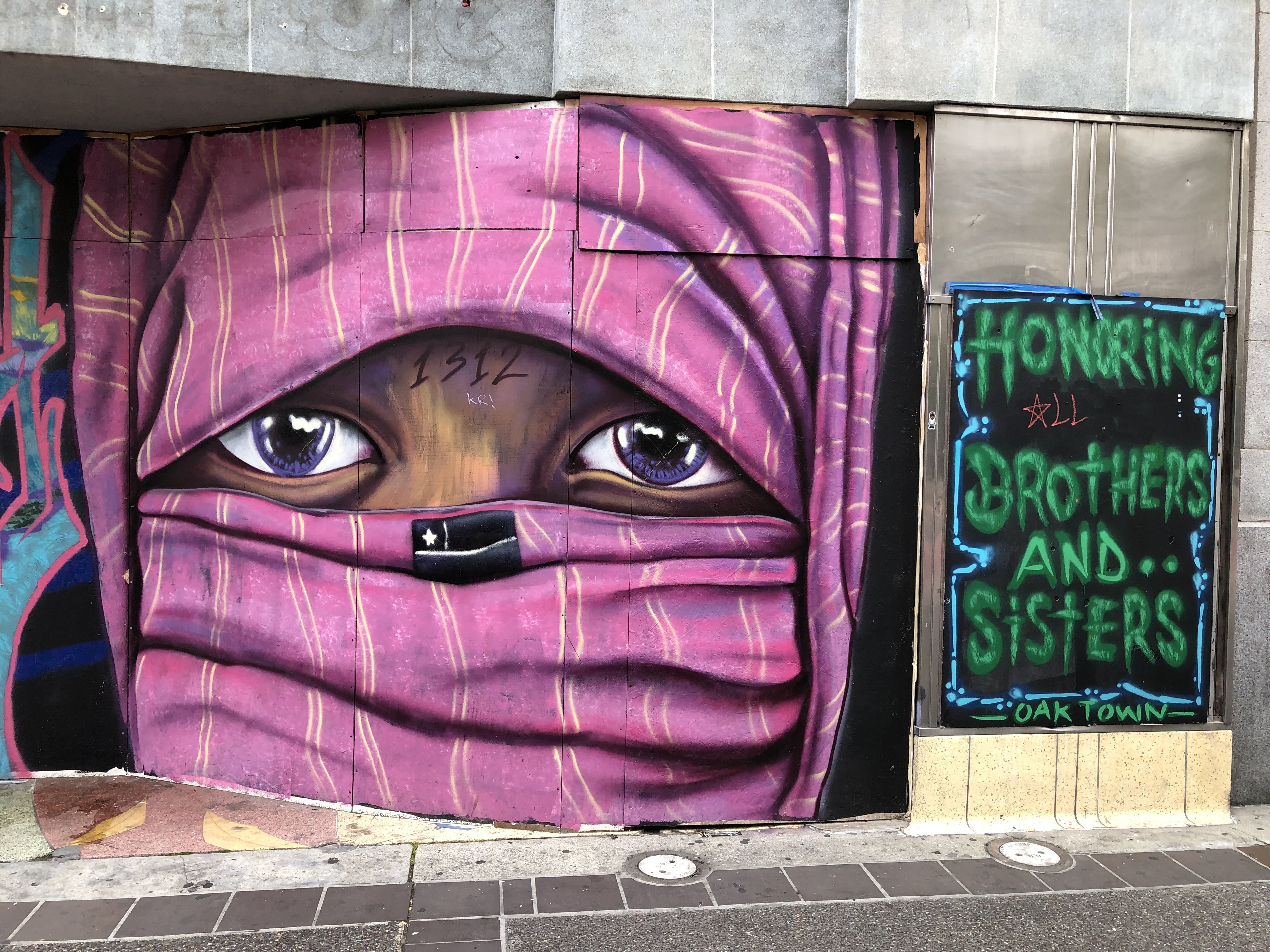
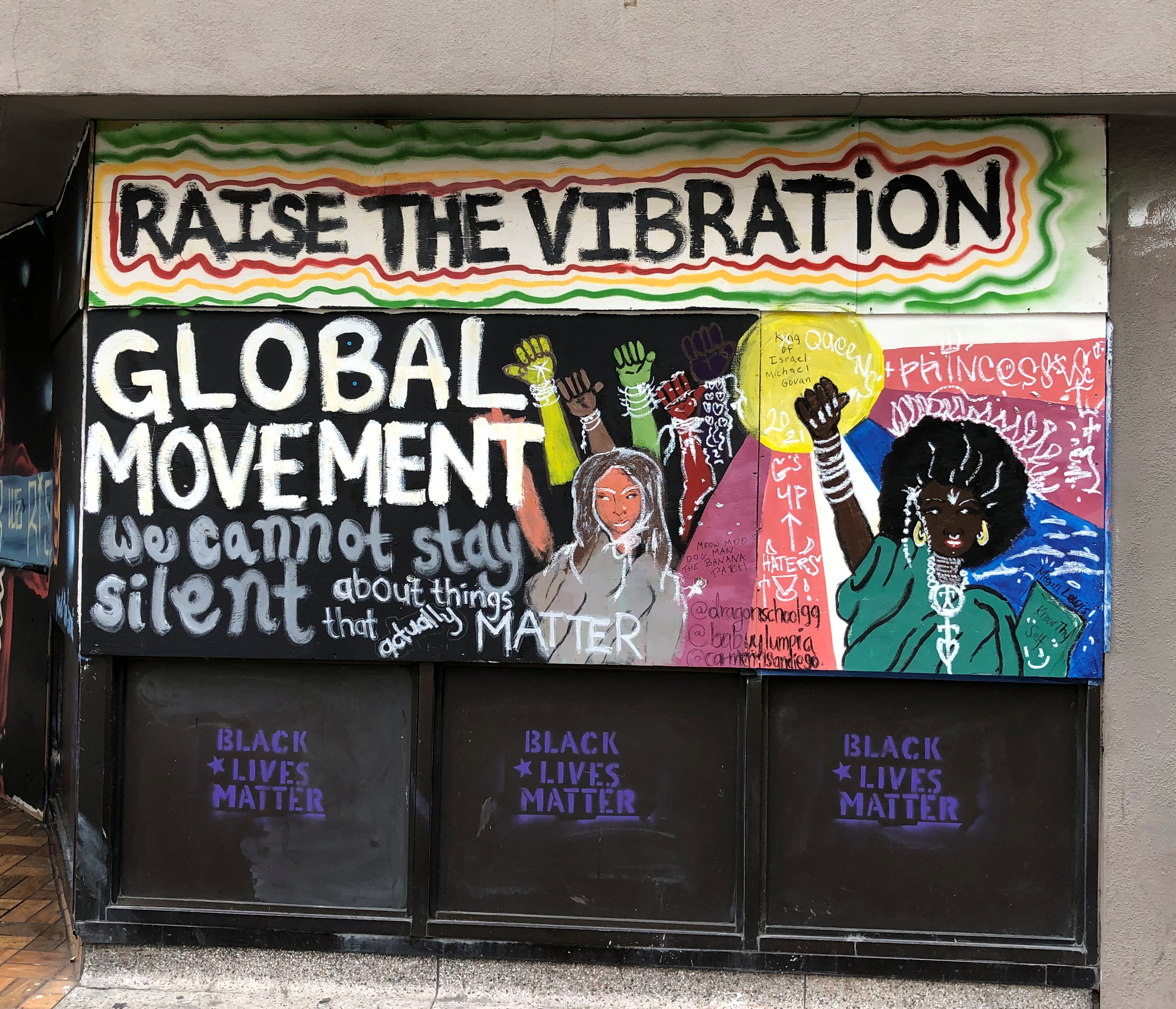
You might call that one a TCM graffito.

